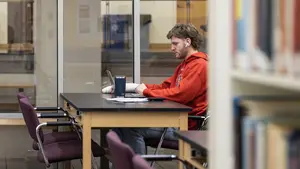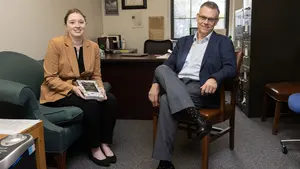Sociology & Anthropology
The sociology and anthropology department will challenge you to critically examine continuing and urgent issues of inequality and social marginalization, focusing on complex human interactions in diverse cultures within a globalized world.
You will learn to analyze structures of power and hierarchy, draw connections between your personal experiences and larger social and historical processes, as well as question preconceived ideas about the nature of society and representation of cultures around the world.

Why Study Sociology or Anthropology?
The department combines a humanistic concern for the quality and diversity of human life with a commitment to the empirical analysis of culture and society. Our graduates enter a wide variety of occupations well prepared with sharp analytical skills and as knowledgeable and engaged citizens.
Courses of Study
Sociology: Major
The sociology curriculum will give you qualitative and quantitative research skills to tackle pressing 21st century issues. Courses draw attention to history, culture and social structure and their effects on people’s lives.
Anthropology: Major, Minor
The anthropology curriculum focuses on human cultural experiences around the world, with an emphasis on the contemporary challenges wrought by globalization. Courses often highlight the geographical areas in which faculty work (Latin America, Asia and Africa) and focus on a diverse range of topics.
Meet the Department Chair





